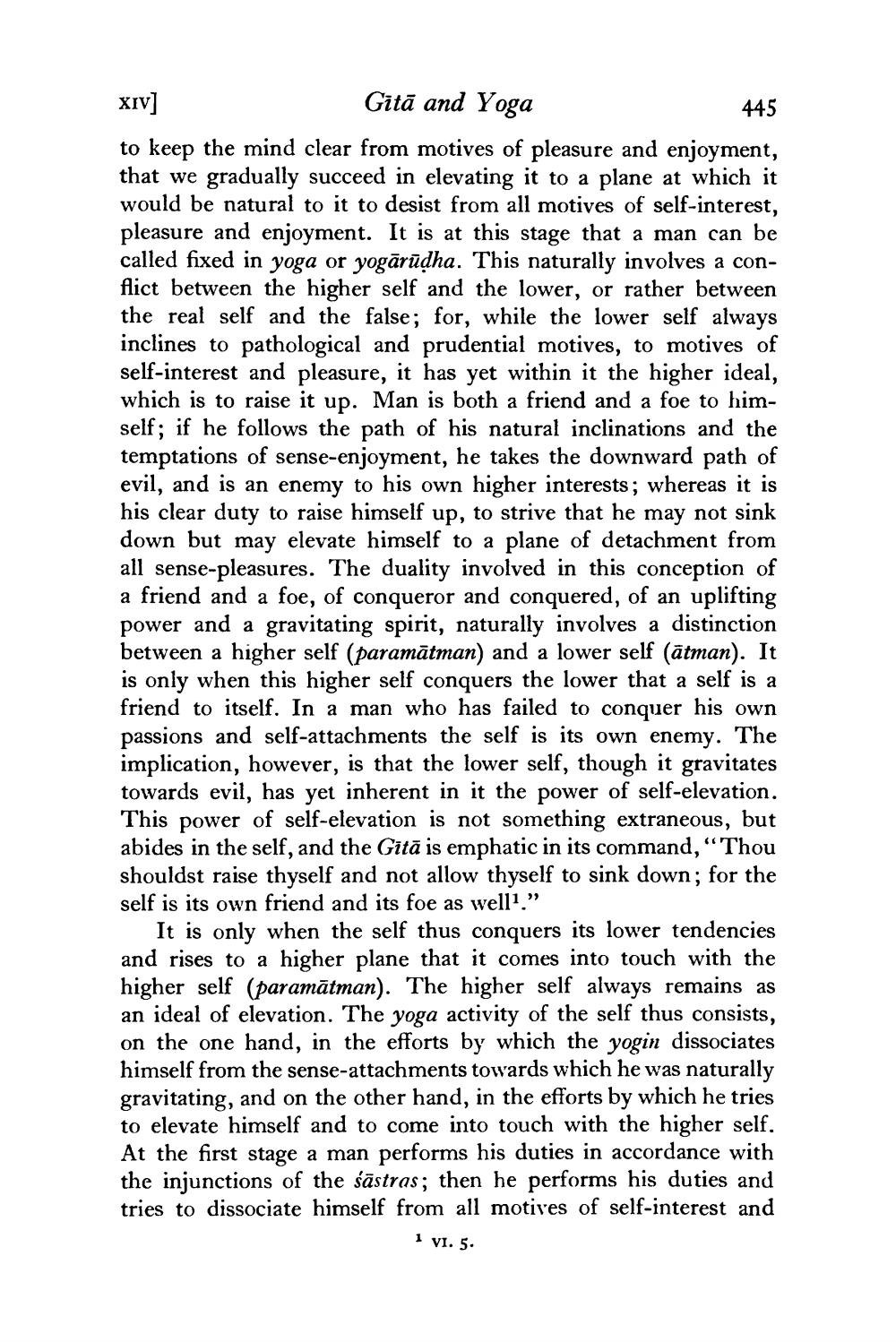________________
XIV] Gītā and Yoga
445 to keep the mind clear from motives of pleasure and enjoyment, that we gradually succeed in elevating it to a plane at which it would be natural to it to desist from all motives of self-interest, pleasure and enjoyment. It is at this stage that a man can be called fixed in yoga or yogārūdha. This naturally involves a conflict between the higher self and the lower, or rather between the real self and the false; for, while the lower self always inclines to pathological and prudential motives, to motives of self-interest and pleasure, it has yet within it the higher ideal, which is to raise it up. Man is both a friend and a foe to himself; if he follows the path of his natural inclinations and the temptations of sense-enjoyment, he takes the downward path of evil, and is an enemy to his own higher interests; whereas it is his clear duty to raise himself up, to strive that he may not sink down but may elevate himself to a plane of detachment from all sense-pleasures. The duality involved in this conception of a friend and a foe, of conqueror and conquered, of an uplifting power and a gravitating spirit, naturally involves a distinction between a higher self (paramātman) and a lower self (ātman). It is only when this higher self conquers the lower that a self is a friend to itself. In a man who has failed to conquer his own passions and self-attachments the self is its own enemy. The implication, however, is that the lower self, though it gravitates towards evil, has yet inherent in it the power of self-elevation. This power of self-elevation is not something extraneous, but abides in the self, and the Gitā is emphatic in its command, “Thou shouldst raise thyself and not allow thyself to sink down; for the self is its own friend and its foe as well?.”
It is only when the self thus conquers its lower tendencies and rises to a higher plane that it comes into touch with the higher self (paramātman). The higher self always remains as an ideal of elevation. The yoga activity of the self thus consists, on the one hand, in the efforts by which the yogin dissociates himself from the sense-attachments towards which he was naturally gravitating, and on the other hand, in the efforts by which he tries to elevate himself and to come into touch with the higher self, At the first stage a man performs his duties in accordance with the injunctions of the śāstras; then he performs his duties and tries to dissociate himself from all motives of self-interest and
1 vi. 5.




